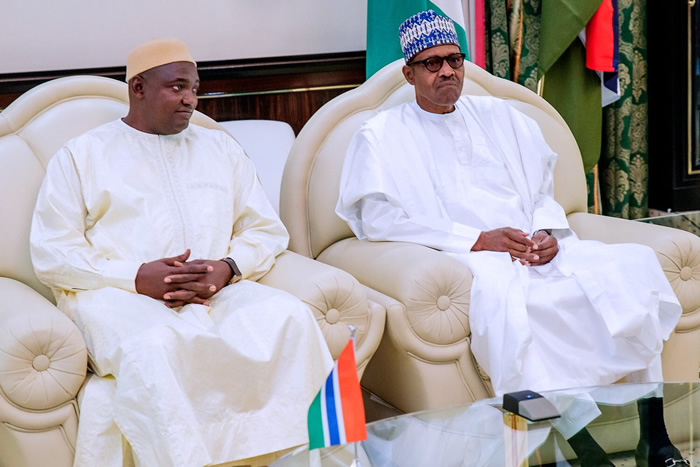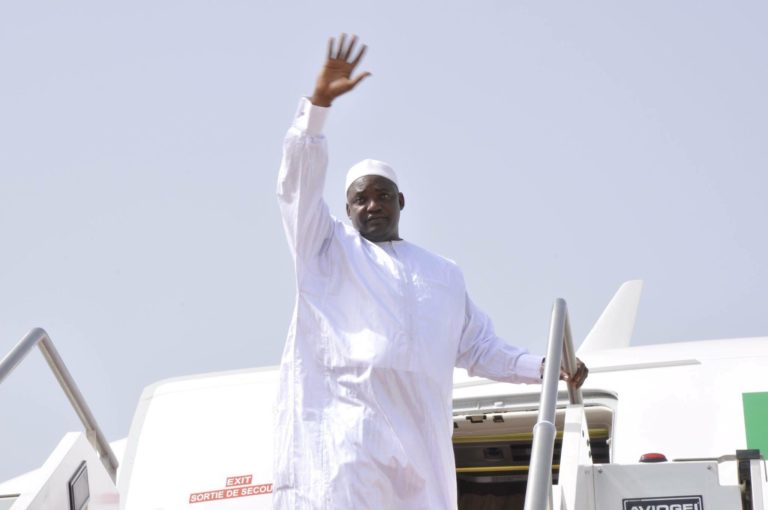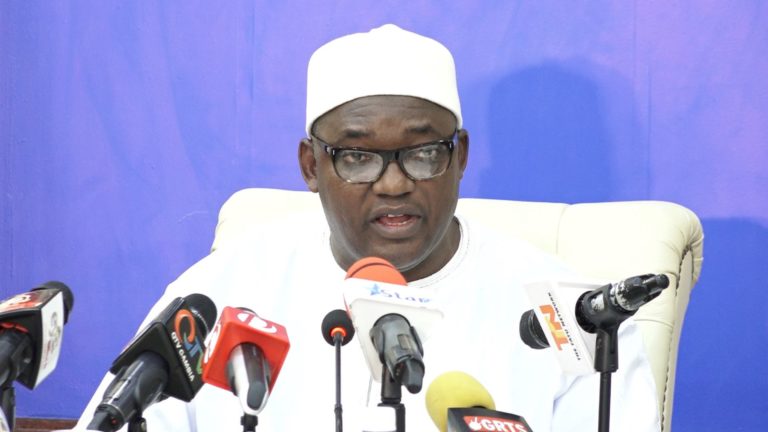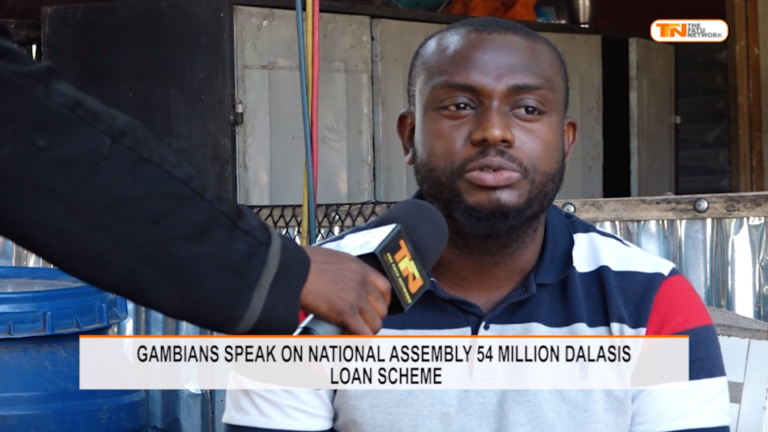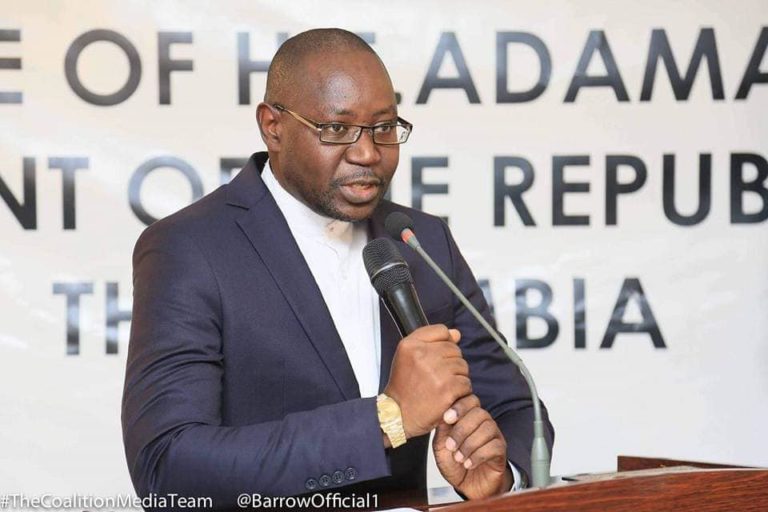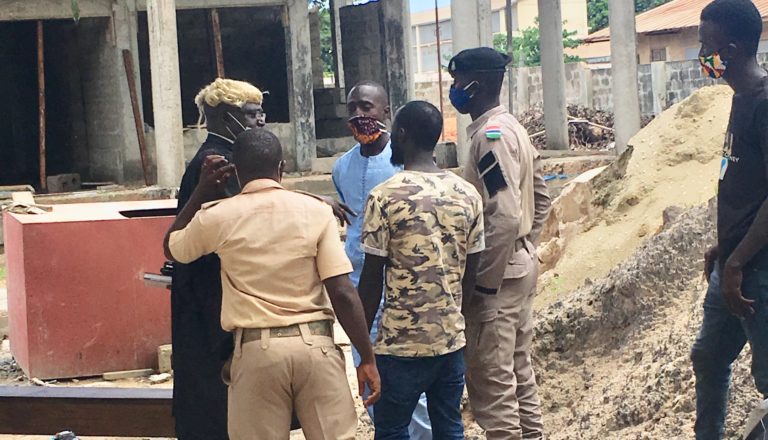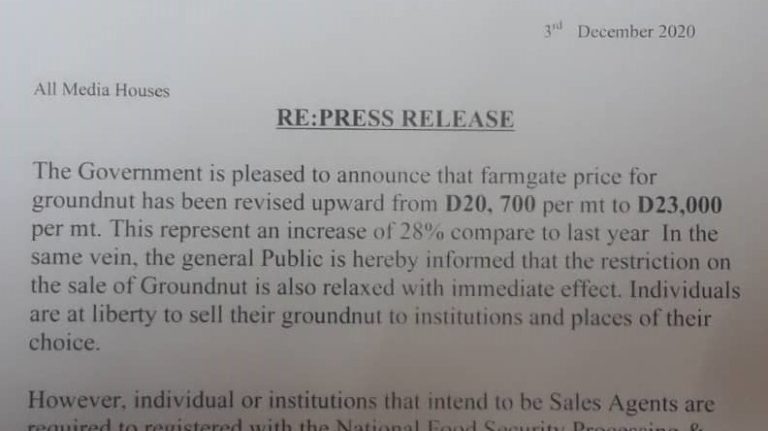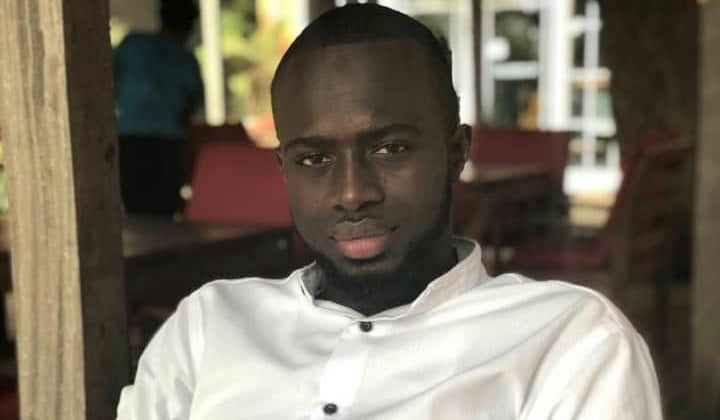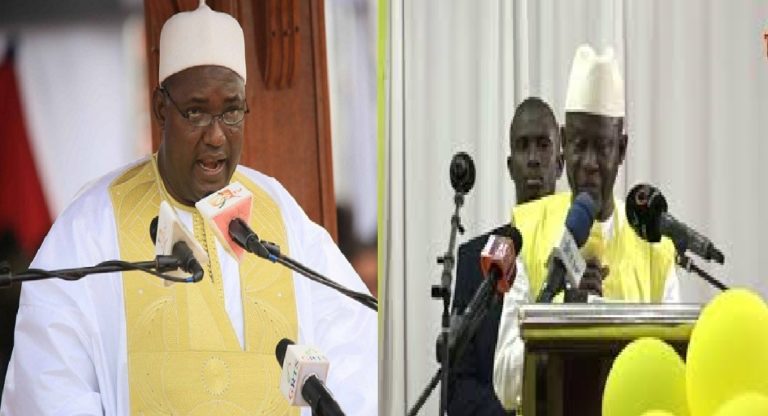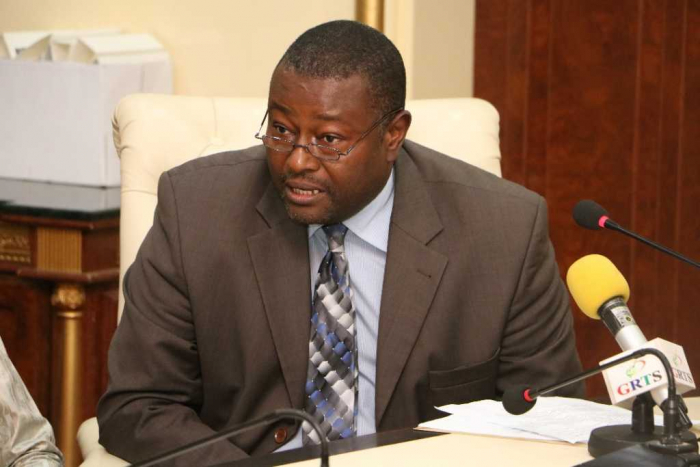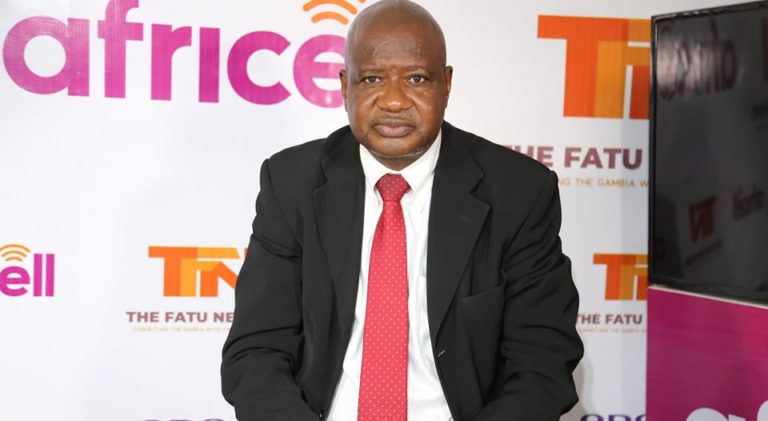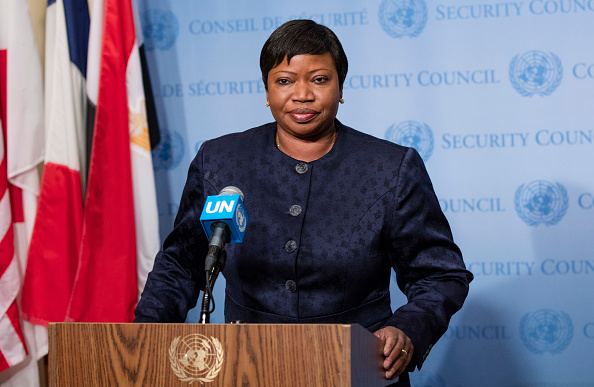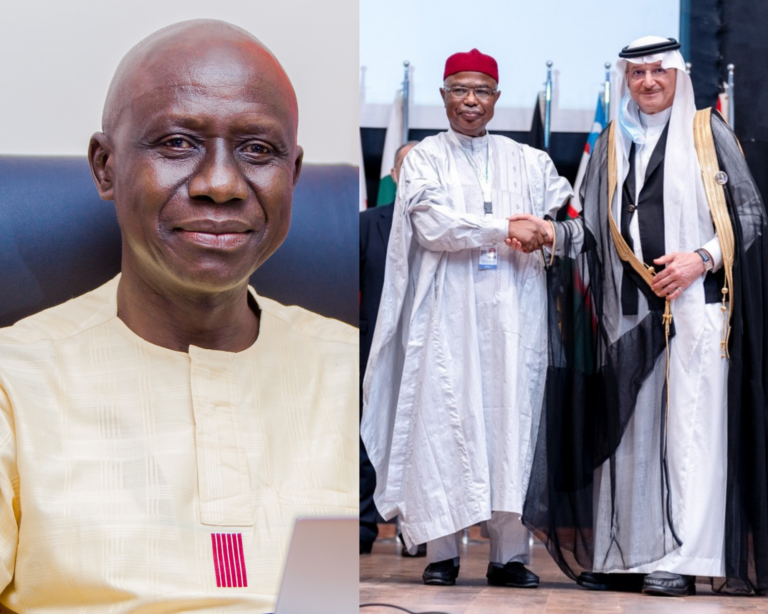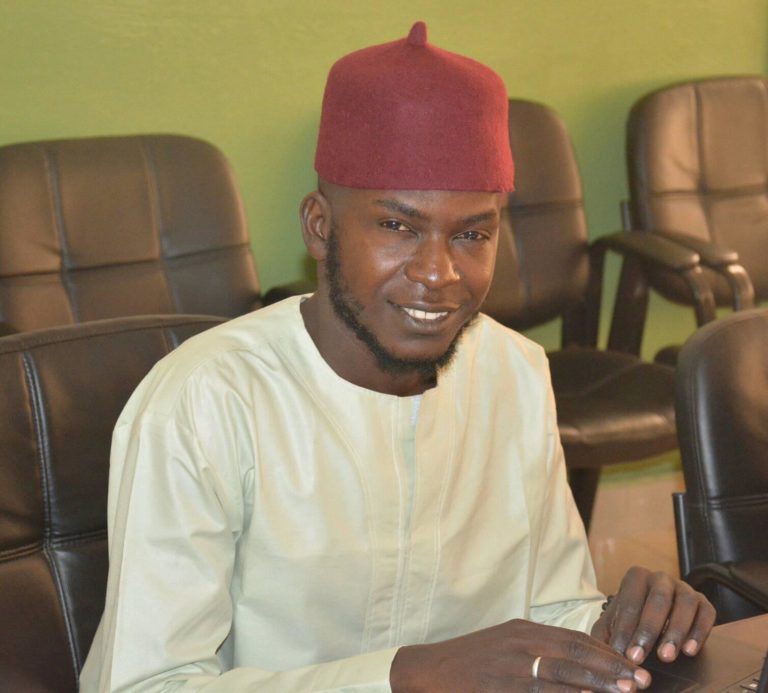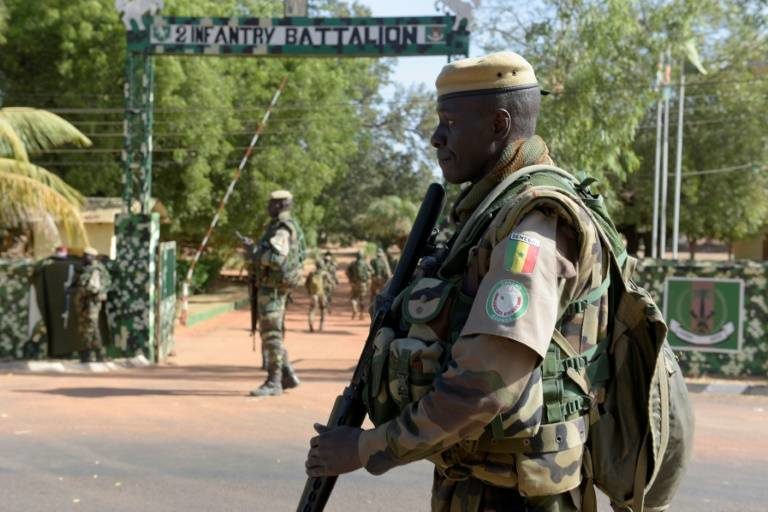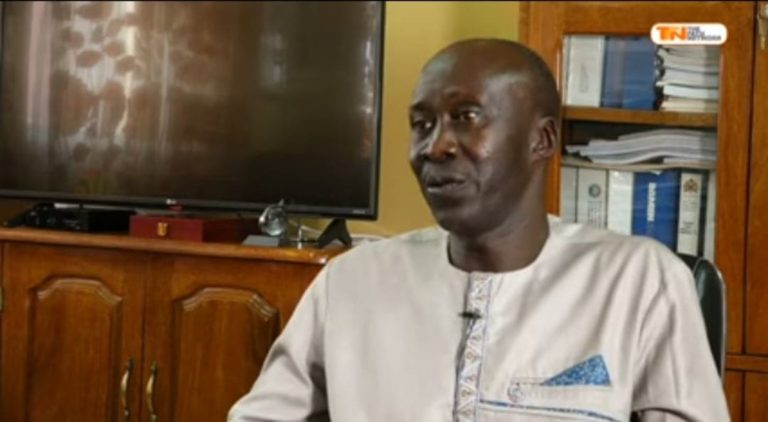By Lamin Njie
State lawyers led by Alasan Jobe have lost in their bid for the high court in Bundung to disallow questions about the divorce of a key witness in the rape trial of businessman Bubacarr Keita.
Senior state lawyer Alasan Jobe had on Wednesday asked judge Momodou SM Jallow not to allow the defence ask anything regarding the divorce of Bubacarr Keita’s ex-wife, as it was ‘not in issue’ – and that ‘it is not something that she ever mentioned in her examination-in-chief’.
Keita’s lawyer had on Wednesday fired back that the senior state lawyer’s objection was ‘misconceived’ – and on Thursday he only escalated his position.
“My Lord, as I indicated yesterday, the objection is misconceived as the issue of the divorce has been constantly alluded to by the witness in her statement, referring to the accused person as ‘my ex-husband’,” Lamin S Camara contended at the resumption of the trial on Thursday.
The lawyer, dressed in his wig and gown, contended more: “My Lord this is not an issue introduced by the defence. It was introduced in the evidence-in-chief severally by the prosecution.
“My learned friend said in his submission that cross-examination should be confined to the witness’s testimony-in-chief. I quote him verbatim. That is really wrong in law.”
Camara then in his bid to convince the judge to ignore what the senior state lawyer first referred the judge to Section 192 (2) of the Evidence Act.
“It reads, ‘the examination and cross-examination must relate to relevant facts but cross-examination need not to be confined to the facts which the witness testified on in his evidence-in-chief’. That’s absolutely clear, you can cross-examine on anything beyond the evidence-in-chief. So we are very well within the confines of the law to ask questions related to the incidents on the 6th of November 2019 and which are important to the facts in issue,” Camara said.
Camara then asserted he will ‘demonstrate’ to the court how asking the witness questions about her divorce are related and relevant to the ‘facts in issue’.
He told the attentive judge: “My Lord I refer you to Section 6, Section 7, Section 9 and Section 11 of the Evidence Act, how the divorce is relevant to the facts in issue.
“Section 6 reads, ‘facts which though not an issue, are so connected with a fact in issue as to form part of the same transaction’. These are issues that happened on the 6th of November 2019, the divorce and the first report at the police station. They occurred at the same time and would have been relevant even if they had occurred at different times under Section 6. Section 6 says they are relevant. And My Lord because they are relevant under Section 6, they are admissible under Section 3 which says ‘relevance is the test of admissibility’.
“My Lord and now Section 7 reads, ‘facts which are the occasion, cause or effect of facts, immediately or otherwise of relevant fact or facts in issue or which constitutes the state of things under which they happen or which accord and afford an opportunity for their occurrence or transaction are relevant. My Lord this is beyond clear that this event of the 6th, the divorce, preceding the police report is relevant for this trial, having regard for the evidence that the complainant was pregnant for 21 weeks and a complaint was not lodged within that 21 weeks.
“Section 11, ‘when facts not otherwise relevant become relevant’. Facts not otherwise relevant; (a) if they are inconsistent with any fact in issue or relevant fact, that’s not what we are relying on, we’re relying on (b): ‘if they themselves in connection with other facts, they make the existence or non-existence of a fact in issue or a relevant fact probable or improbable’. What is the motive of the first complaint after the divorce was granted on the 6th of November 2019. It is relevant. It goes to explain the motive here My Lord and that’s what we’re talking about.
“And finally, Section 202 of the Evidence Act which will lay the whole thing to rest… It says questions lawful in cross-examination. [It reads], ‘when a witness is cross-examined, he may in addition to the question herein before referred to be asked any questions which tend to; (a) to test the accuracy, veracity or credibility’ – and let me pause here… The question to the witness was ‘what eventful thing happened on the 6th?’ Testing the veracity of the witness who told us in her evidence in chief that she went to lodge a report at the police. She said she doesn’t remember. Less than two hours after having said she reported the matter on the 6th, you said you don’t remember anything eventful that happened, conspicuously avoiding the divorce issue. My Lord the other part of it (Section 202) (b) to discover who he is and what is his position in life or to shake his credit by injuring his character. I have a right as a defence to do that. And therefore the objection is baseless. The question is perfectly legitimate because it’s relevant under Sections 6, 7, 9, 11, 202 and 3 of the Evidence Act and most importantly Section 192 of the EA.”
The senior state counsel when asked by the judge to respond to the defence lawyer’s argument on ‘points of law’ said he would like to define what ‘fact’ is as defined in Section 2 of the Evidence Act.
“‘Fact in issue includes any fact from which either by itself or in connection with other facts in existence, non-existence, nature or extent of any right, liability or disablity asserted or denied in any suit or proceedings necessarily follows’. That is the definition of fact under Section 2. My Lord, the fact in issue in this case is not what happened or transpired on the 6th of November. It has nothing absolutely [with the issue]. The witness in fact never said she was divorced on the 6th,” the Alasan Jobe said, in comments that were quickly met by protestation from the defence lawyer Lamin Camara.
“Sorry My Lord, I don’t want to interrupt but this is not a point of law. My learned friend can only reply on what I have raised or any other law but he cannot go into facts any more. That’s not law, that’s facts and I never said that too. I never said in my submission that she said she was divorced on the 6th,” Camara said.
The judge intervened and told the senior state lawyer he was only required to reply on points of law.
“Lead state counsel has gone into given facts and not points of law, senior defence counsel. Though he has touched on the only point of law which does not fall within what the Honourable Court will give credence to senior counsel’s objection on the question that he had asked. Please focus on points of law only, state counsel,” the judge said.
“Going by the definition of fact in issue which I read out under Section 2…,” the senior state lawyer said when asked by the judge to speak only on points of law or rather allow him to give a ruling on the issue.
Jobe then said after bending towards his two assistants for about 30 seconds: “The divorce of the witness does not fall under the ambit of fact in issue. I therefore urge this Honourable Court to dismiss the defence counsel’s reliance on Sections 6, 7, 9, 11 and 202 [of the EA] as it is not applicable in this instance.”
The judge in handing down his ruling said “so in cross-examination, what senior [defence] counsel has given to the court is the way, exact lines that any court will expect questioning to tread on”.
“Anything otherwise would be deviating and if you raise an objection will not upheld. But wherein he has even vaguely touched on any of those issues that bear on Sections that he has cited, the law will listen to that and allow such a question. The court will allow such a question to be asked based on the reason embedded in those sections senior counsel has ably cited,” he said.
The judge continued: “It is only when it is related to the marriage as a fact in issue that it can hold but notwithstanding, it has not affected the question in that the witness, ab initio, indicated that she was divorced, even at the stage of her details, she did. Those are all in record. So really I get worried when I see such objections.
“So please make sure that when they’re are questioning in cross-examination, anybody who is not well-grounded in the Evidence Act, go into it and be well-grounded and let questioning flow so that we are not delayed by raising objections. Because there is no way such an objection will be upheld. So please take note and just allow them to cross-examine. If he was questioning only on the issue of her divorce but look at the question. So state counsel present and any counsel present please listen to the court.
“Sometimes when we give you a hint about something, if you listen, we will make progress because certainly really there was no reason whatsoever to raise an objection in this instance and that’s my ruling. So the objection is overruled and the witness will be required to answer the question because it’s a fair question to ask in cross-examination.
“The question that senior counsel for the accused had asked is ruled relevant in cross-examination as it would help the court to establishing the veracity of the witness testimony to be relied on. Such a question would be admissible in cross-examination with the court having so ruled, inter alia, would allow the witness to answer I quote, ‘the second thing that happened the first being that after you had been granted a divorce’ which is ruled as a fair question to ask. Objection is overruled state counsel. Please answer the question PW 1.”
The witness in answering the question said the reason why she did not answer that question and that she couldn’t remember what happened on Nov. 6, 2019 is because as far as she could recall her marriage collapsed in February 2020.
“February 12, 2020 was when my marriage ended in divorce,” she said in a moment which saw the senior state lawyer wanting to intervene.
“My Lord, I just want to guide the witness. Since the court has ruled that the divorce is relevant to the fact in issue,” the senior state lawyer started saying but the defence lawyer asked the judge to have what the witness said go into the record first.
The defence lawyer insisted further that the statement be recorded even as the senior state counsel wanted to speak more.
“My Lord, I think we need to take this matter very seriously. I don’t want to downplay the charge but similarly, we cannot downplay the fact that a person’s life is hanging on the balance. He cannot stand there and give statements. The witness said she was not divorced on the 6th,” Camara blasted.
The judge stated that where anything concerns the veracity of witness’s testimony is for the record to capture it.
In continuing, the witness said ‘it is in fact because of this case that my marriage collapsed’.
“When I found out my sister was pregnant, on the day we went to the police to report it, they arrested him and he spent the night at the police, I spent the night in his house,” the witness said.
The case continues on Dec 10.

